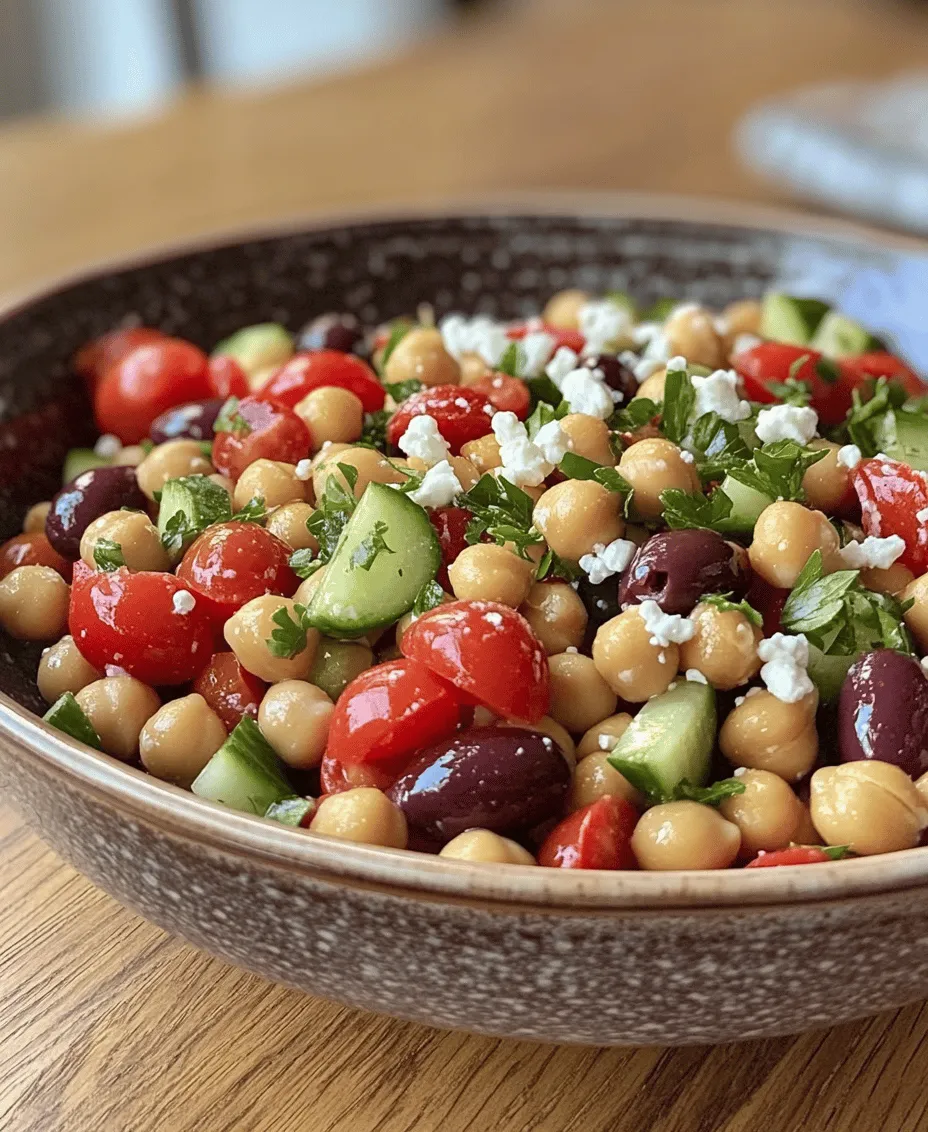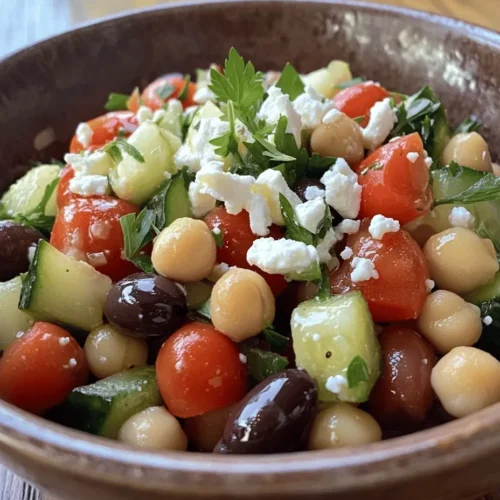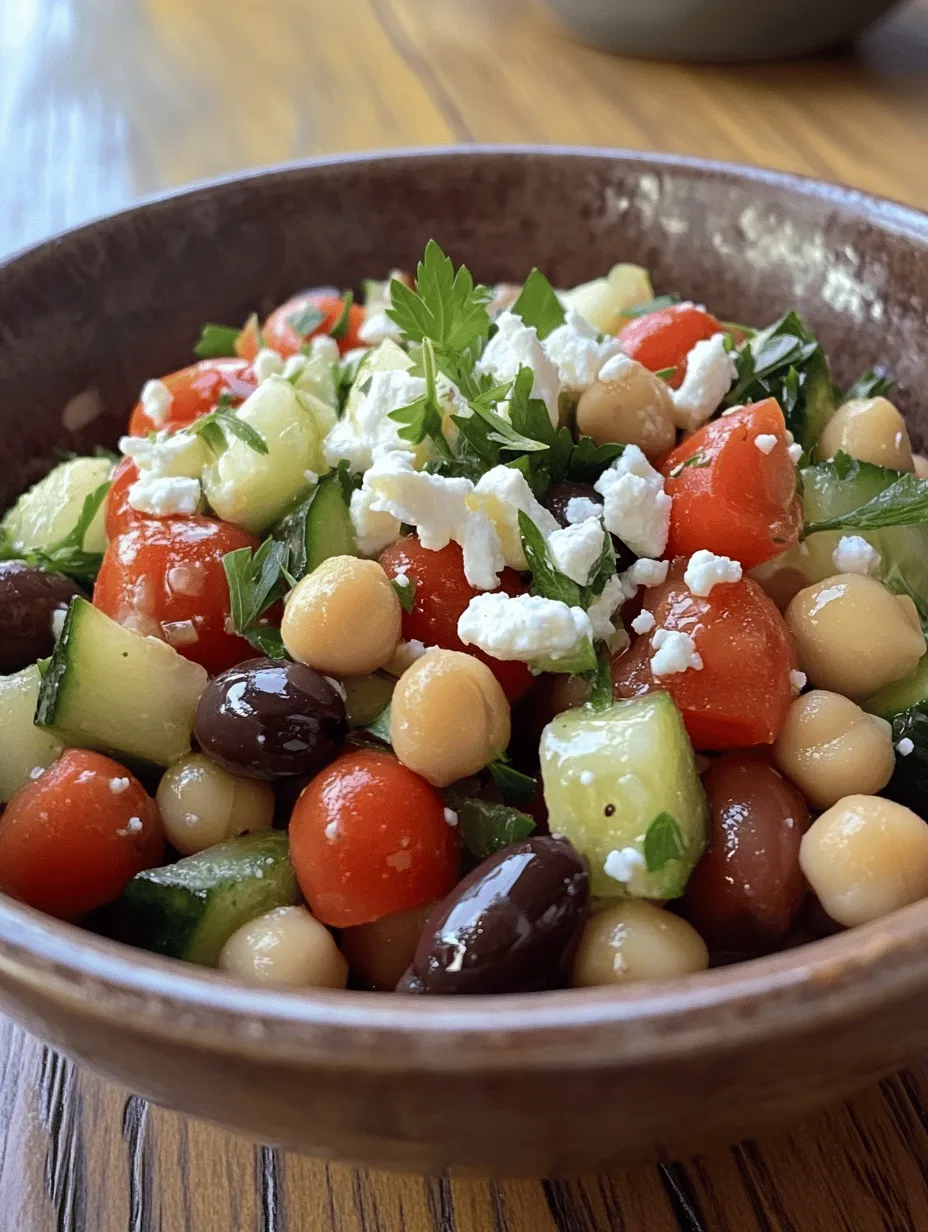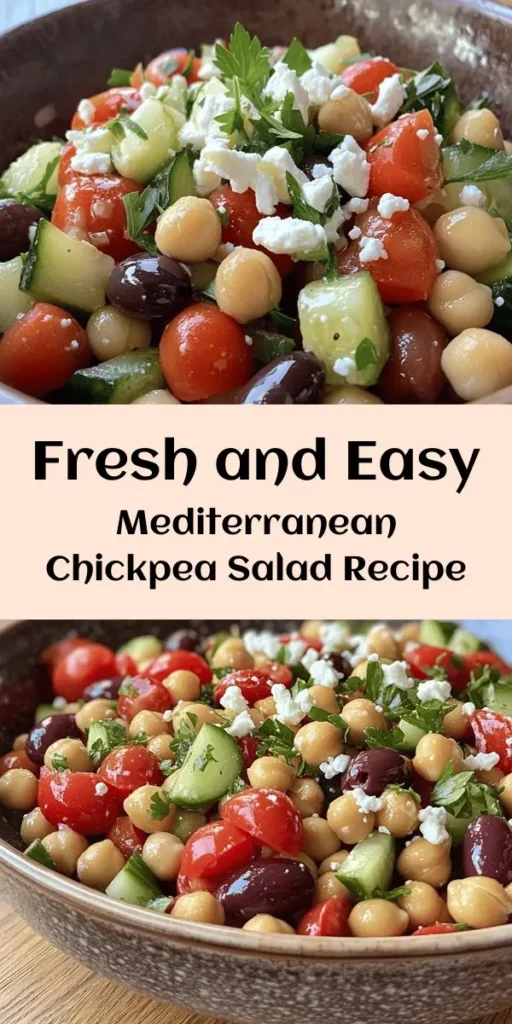Introduction
The Mediterranean diet is celebrated not only for its delicious flavors but also for its health benefits. Drawing inspiration from the rich culinary traditions of countries bordering the Mediterranean Sea—such as Italy, Greece, and Spain—this diet emphasizes fresh fruits, vegetables, whole grains, legumes, and healthy fats, particularly olive oil. It’s a lifestyle choice that encourages a balanced approach to eating, promoting not just physical health but also social well-being through communal meals.
In this article, we present five easy recipes that embrace the vibrant ingredients and wholesome principles of Mediterranean cuisine. Each recipe is designed to be simple, nutritious, and packed with flavor, making your weeknight dinners enjoyable and stress-free. From refreshing salads to hearty main dishes, these recipes will inspire you to create delightful meals for you and your loved ones.
Celebrating the Mediterranean Diet
Understanding the Mediterranean Diet
At its core, the Mediterranean diet is more than just a meal plan; it’s a holistic approach to eating that encourages a variety of foods and flavors while minimizing processed ingredients. The diet promotes an abundance of fruits and vegetables, whole grains, nuts, legumes, and healthy fats, primarily sourced from olive oil. Fish and poultry are included in moderation, while red meat is consumed sparingly.
This culinary philosophy not only emphasizes the nutritional quality of foods but also highlights the joy of sharing meals with family and friends. The Mediterranean lifestyle encourages mindful eating and fosters a strong connection between food and health.
Exploring its Health Benefits
Research has consistently shown that adhering to the Mediterranean diet can lead to numerous health benefits. Studies suggest a reduced risk of chronic diseases such as heart disease, diabetes, and certain cancers. The diet is rich in antioxidants, fiber, and healthy fats, which contribute to overall wellness, weight management, and improved digestive health.
Additionally, the focus on whole, unprocessed foods can enhance mental clarity and emotional well-being. With its emphasis on variety and balance, the Mediterranean diet provides a sustainable approach to healthy eating that can be maintained over the long term.
Key Ingredients of Mediterranean Cuisine
To create delicious Mediterranean meals, it’s essential to stock your pantry with certain key ingredients. These include:
– Olive Oil: The cornerstone of Mediterranean cooking, olive oil is rich in monounsaturated fats and antioxidants.
– Fruits and Vegetables: Seasonal and local produce is favored, with tomatoes, cucumbers, bell peppers, eggplants, and leafy greens being staples.
– Legumes: Beans, lentils, and chickpeas provide protein and fiber, serving as excellent meat alternatives.
– Whole Grains: Foods like quinoa, bulgur, and whole-wheat bread are common sources of carbohydrates.
– Nuts and Seeds: Almonds, walnuts, and sesame seeds contribute healthy fats and add texture to dishes.
– Herbs and Spices: Fresh herbs like basil, parsley, and oregano, as well as spices such as cumin and paprika, enhance flavor without the need for excess salt.
With these ingredients in hand, you can easily whip up a variety of Mediterranean-inspired dishes that are both satisfying and nutritious.
Easy Mediterranean Chickpea Salad
One of the standout recipes in our collection is the Easy Mediterranean Chickpea Salad. This dish is not only vibrant and colorful but also incredibly nutritious, making it a perfect addition to any weeknight meal plan. Chickpeas, also known as garbanzo beans, are the star of this salad, providing a hearty source of plant-based protein, fiber, and a range of essential vitamins and minerals.
Overview of the Recipe
The Easy Mediterranean Chickpea Salad is a refreshing and versatile dish that showcases the bright flavors of the Mediterranean. It combines protein-rich chickpeas with crunchy vegetables, fresh herbs, and a zesty dressing, making it an excellent side dish or a light main course. This salad can be prepared in under 30 minutes and is perfect for meal prep, as it keeps well in the refrigerator for a few days.
Ingredients Breakdown
To prepare this delightful salad, you’ll need the following ingredients:
– Canned Chickpeas: 1 can (15 oz), drained and rinsed. Chickpeas are the primary ingredient, providing protein, fiber, and essential nutrients.
– Cucumbers: 1 medium, diced. Refreshing and crunchy, cucumbers add a nice texture to the salad.
– Cherry Tomatoes: 1 cup, halved. Sweet and juicy, cherry tomatoes contribute vibrant color and flavor.
– Red Onion: 1 small, finely chopped. For a sharp bite, red onions are a perfect addition, balancing the other flavors.
– Bell Pepper: 1 medium, diced (any color). Bell peppers add sweetness and crunch.
– Feta Cheese: ½ cup, crumbled (optional). Feta cheese provides a tangy flavor that complements the other ingredients.
– Fresh Parsley: ¼ cup, chopped. Parsley adds freshness and brightens the overall taste.
– Olive Oil: 3 tablespoons. This healthy fat forms the base of the dressing.
– Fresh Lemon Juice: 2 tablespoons. The acidity of lemon juice enhances the flavors and adds brightness.
– Garlic: 1 clove, minced. Garlic provides depth and flavor to the salad.
– Salt and Pepper: To taste. Essential for seasoning and enhancing the natural flavors of the ingredients.
Nutritional Benefits of Chickpeas
Chickpeas are a powerhouse of nutrition. They are high in protein, making them an excellent choice for vegetarians and vegans looking to meet their protein needs. Additionally, they are rich in dietary fiber, which aids in digestion and helps maintain stable blood sugar levels. Chickpeas also contain essential minerals such as iron, magnesium, and zinc, which are crucial for overall health.
Incorporating chickpeas into your diet can support weight management by promoting feelings of fullness and reducing overall calorie intake. Furthermore, their low glycemic index makes them a smart choice for individuals managing diabetes.
Step-by-Step Instructions
Now that you have your ingredients ready, let’s walk through the simple steps to create the Easy Mediterranean Chickpea Salad.
Preparing the Salad
1. Drain and Rinse the Chickpeas: Start by opening the can of chickpeas. Pour them into a colander and rinse under cold water to remove excess sodium and any canning liquid. Allow them to drain well.
2. Chop the Vegetables: While the chickpeas are draining, prepare your vegetables. Dice the cucumber and bell pepper into bite-sized pieces, halve the cherry tomatoes, and finely chop the red onion. The key to a great salad is uniformity in size, so aim for similar dimensions to ensure even distribution of flavors.
3. Combine the Ingredients: In a large mixing bowl, add the drained chickpeas, chopped cucumber, cherry tomatoes, red onion, bell pepper, and chopped parsley. If using feta cheese, sprinkle it over the top.
Making the Dressing
4. Prepare the Dressing: In a small bowl, whisk together the olive oil, fresh lemon juice, minced garlic, salt, and pepper. Adjust the seasoning to your taste. The dressing should be zesty yet balanced, so feel free to add more lemon juice or salt if desired.
5. Dress the Salad: Pour the dressing over the salad ingredients in the large mixing bowl. Gently toss everything together using a spatula or spoon, ensuring the chickpeas and vegetables are evenly coated with the dressing.
Combining and Serving the Salad
6. Let it Marinate: For the best flavor, allow the salad to sit for at least 10-15 minutes before serving. This resting time allows the ingredients to meld together, enhancing the overall taste.
7. Serve: You can serve the salad as a standalone dish or as a side to grilled chicken, fish, or pita bread. It pairs beautifully with a variety of Mediterranean dishes, making it a versatile addition to your meal rotation.
Flavor Enhancement Techniques
To elevate the flavor of your Easy Mediterranean Chickpea Salad, consider these enhancements:
– Add Avocado: For a creamy texture, include diced avocado. This not only enhances the flavor but also adds healthy fats.
– Incorporate Olives: Chopped Kalamata or green olives can introduce a briny flavor that complements the other ingredients beautifully.
– Spice It Up: If you enjoy a bit of heat, try adding red pepper flakes or diced jalapeños to the salad for an extra kick.
– Experiment with Herbs: While parsley is a great choice, feel free to experiment with other fresh herbs like mint or dill for a unique twist.
Suggested Pairings with Dishes
The Easy Mediterranean Chickpea Salad is incredibly versatile and can be paired with a variety of dishes to create a complete meal. Here are some suggestions:
– Grilled Chicken: The salad pairs beautifully with marinated and grilled chicken breast, providing a healthy protein source alongside the fiber-rich salad.
– Fish Tacos: Serve the salad as a topping for grilled fish tacos, adding freshness and crunch to each bite.
– Pita Bread: Enjoy the salad with warm pita bread or pita chips for a satisfying dip.
– Quinoa Bowl: Use the salad as a topping for a quinoa bowl, combining it with roasted vegetables and your choice of protein for a hearty meal.
– Mediterranean Wraps: Fill whole-grain wraps with the salad and additional protein for a quick and nutritious lunch.
With the Easy Mediterranean Chickpea Salad, you have a wholesome and delightful dish that highlights the best of Mediterranean cuisine. It’s easy to prepare, packed with nutrients, and perfect for a weeknight dinner or meal prep. In the next sections, we will explore more easy Mediterranean recipes that will elevate your weeknight meals and inspire your culinary creativity.

Why Seafood is Essential in Mediterranean Cooking
Mediterranean cuisine is celebrated for its diverse use of fresh ingredients, vibrant flavors, and health benefits. Seafood, particularly, plays a pivotal role in this culinary tradition. Rich in omega-3 fatty acids, seafood is not only delicious but also supports heart health, reduces inflammation, and enhances brain function. The Mediterranean lifestyle emphasizes using high-quality ingredients, and seafood provides a lean protein source that complements the region’s rich agricultural produce. Incorporating seafood into dishes like our Mediterranean Chickpea Salad adds depth and a satisfying texture, making it a balanced meal option.
Ingredients Overview
For our Mediterranean Chickpea Salad, you will need to gather the following ingredients:
– Canned chickpeas (2 cans, rinsed and drained)
– Fresh spinach (2 cups, roughly chopped)
– Cherry tomatoes (1 cup, halved)
– Cucumber (1 medium, diced)
– Red onion (1 small, finely diced)
– Feta cheese (1 cup, crumbled)
– Fresh parsley (1/4 cup, chopped)
– Olive oil (1/4 cup)
– Lemon juice (from 1 large lemon)
– Garlic (2 cloves, minced)
– Salt and pepper (to taste)
– Optional: Kalamata olives (1/2 cup, pitted and sliced)
These ingredients not only provide a vibrant array of colors but also deliver a nutritional punch, making this salad a wholesome meal option.
Health Benefits of Shrimp and Spinach
Both shrimp and spinach are powerhouses of nutrition. Shrimp is low in calories yet high in protein, making it a fantastic choice for those looking to maintain a healthy weight. It is also rich in antioxidants, which help combat oxidative stress in the body. Spinach, on the other hand, is loaded with vitamins A, C, and K, as well as iron and magnesium. This leafy green promotes eye health, supports the immune system, and helps regulate blood pressure. Together, they enhance the nutritional profile of our Mediterranean Chickpea Salad, making it not only delicious but also a healthful option.
Step-by-Step Instructions
Cooking the Pasta Perfectly
1. Boil Water: Start by filling a large pot with water and bring it to a rolling boil. Add a generous pinch of salt to the water to enhance the pasta’s flavor.
2. Add Pasta: Once the water is boiling, add your choice of pasta (orzo, fusilli, or any small shape works best). Cook according to the package instructions until al dente.
3. Drain and Rinse: Once cooked, drain the pasta in a colander and rinse with cold water to stop the cooking process. This will also help keep the pasta from sticking together.
Sautéing Shrimp and Garlic
1. Heat Oil: In a large skillet, heat a tablespoon of olive oil over medium heat.
2. Cook Shrimp: Add the shrimp (approximately 1 pound) to the skillet in a single layer. Cook for about 2-3 minutes on each side or until they turn pink and opaque.
3. Add Garlic: During the last minute of cooking, add the minced garlic to the skillet. Sauté for an additional minute until fragrant, being careful not to burn the garlic.
4. Season: Season the shrimp with salt and pepper to taste, and remove them from the heat. Set aside to cool slightly.
Incorporating Spinach and Pasta
1. Combine Ingredients: In a large mixing bowl, combine the cooked pasta, sautéed shrimp, chopped spinach, chickpeas, cherry tomatoes, cucumber, and red onion.
2. Add Feta and Parsley: Gently fold in the crumbled feta cheese and fresh parsley, ensuring even distribution throughout the salad.
Final Touches for Flavor
1. Dress the Salad: In a small bowl, whisk together the olive oil, lemon juice, minced garlic, salt, and pepper. Pour this dressing over the salad.
2. Toss Gently: Use tongs to toss the salad gently until all ingredients are well-coated with the dressing.
3. Taste and Adjust: Taste the salad and adjust the seasoning with more salt, pepper, or lemon juice as desired.
Garnishing Ideas for Presentation
– Herb Sprigs: Top the salad with additional sprigs of parsley or dill for a fresh touch.
– Olives: Add Kalamata olives on top for an extra burst of flavor and a Mediterranean flair.
– Lemon Wedges: Serve with lemon wedges on the side to allow guests to add a splash of fresh lemon juice as they please.
– Feta Crumbles: Sprinkle some additional feta over the top for an appealing presentation.
Quinoa & Roasted Veggie Bowl
Introduction to Quinoa as a Superfood
Quinoa is often celebrated as a superfood due to its impressive nutritional profile. Unlike many other grains, quinoa is a complete protein, containing all nine essential amino acids. It is gluten-free, high in fiber, and rich in vitamins and minerals, including magnesium and manganese. This makes quinoa an excellent choice for those following a plant-based diet or anyone looking to boost their nutrient intake.
Nutritional Benefits of Roasted Vegetables
Roasting vegetables enhances their natural sweetness while preserving their nutrients. Common vegetables like bell peppers, zucchini, and carrots become caramelized and tender when roasted, creating a delightful texture and flavor. These vegetables are packed with vitamins A, C, and K, as well as antioxidants that support overall health. Incorporating roasted veggies into your quinoa bowl not only adds color but also elevates the nutritional value of your meal.
Ingredient Breakdown
For the Quinoa & Roasted Veggie Bowl, you will need:
– Quinoa (1 cup)
– Vegetable broth or water (2 cups)
– Assorted vegetables (bell peppers, zucchini, carrots, and red onion)
– Olive oil (2 tablespoons)
– Garlic powder (1 teaspoon)
– Paprika (1 teaspoon)
– Salt and pepper (to taste)
– Fresh herbs (basil or cilantro, for garnish)
These ingredients work together to create a visually appealing and nutritious bowl that is perfect for lunch or dinner.
Step-by-Step Instructions
Preparing and Roasting the Vegetables
1. Preheat Oven: Preheat your oven to 425°F (220°C).
2. Chop Vegetables: Wash and chop your assorted vegetables into bite-sized pieces.
3. Toss with Oil and Seasoning: In a large mixing bowl, toss the chopped vegetables with olive oil, garlic powder, paprika, salt, and pepper until evenly coated.
4. Roast: Spread the seasoned vegetables on a baking sheet in a single layer. Roast in the preheated oven for 20-25 minutes or until tender and slightly charred, stirring halfway through for even cooking.
Cooking Quinoa to Perfection
1. Rinse Quinoa: Rinse the quinoa under cold water in a fine-mesh strainer to remove any bitterness.
2. Boil: In a medium saucepan, bring vegetable broth or water to a boil.
3. Cook Quinoa: Add the rinsed quinoa to the boiling liquid. Reduce heat to low, cover, and simmer for 15 minutes or until all the liquid is absorbed.
4. Fluff: Remove from heat and let it sit for 5 minutes before fluffing with a fork.
Assembling the Bowl
1. Base Layer: Start with a generous scoop of quinoa at the bottom of each bowl.
2. Add Roasted Veggies: Top the quinoa with a colorful assortment of roasted vegetables.
3. Garnish: Sprinkle fresh herbs over the top for added flavor and visual appeal.
Creative Serving Ideas
– Dressing Drizzle: Consider drizzling a tahini dressing or balsamic glaze over the bowl for an added flavor dimension.
– Protein Addition: For a protein boost, add grilled chicken, chickpeas, or tofu to the bowl.
– Nuts and Seeds: Top with toasted nuts or seeds such as pumpkin seeds or almonds for crunch.
Optional Add-ons for Customization
– Cheese: Sprinkle with feta, goat cheese, or nutritional yeast for a cheesy flavor.
– Avocado: Add sliced avocado for creaminess and healthy fats.
– Spices: Experiment with different spices like cumin or chili flakes to customize the flavor profile.
Quick Teriyaki Salmon & Rice
Fusion of Flavors: Teriyaki Meets Mediterranean
The combination of teriyaki flavors with Mediterranean ingredients creates a unique culinary experience that is both satisfying and delicious. This dish is perfect for those looking to explore new flavor profiles while enjoying the health benefits of salmon and fresh vegetables.
Ingredients Overview
For the Quick Teriyaki Salmon & Rice dish, you will need:
– Salmon fillets (4 fillets, about 6 ounces each)
– Teriyaki sauce (1/2 cup)
– Broccoli (2 cups, cut into florets)
– Jasmine or brown rice (1 cup)
– Vegetable broth or water (2 cups)
– Olive oil (2 tablespoons)
– Sesame seeds (for garnish)
– Green onions (sliced, for garnish)
These ingredients come together to create a flavorful dish that is both quick to prepare and visually appealing.
Health Benefits of Salmon
Salmon is an excellent source of omega-3 fatty acids, which are essential for maintaining heart health and reducing inflammation. It is also rich in high-quality protein, B vitamins, and selenium. Regular consumption of salmon can support brain function, improve mood, and contribute to overall well-being.
Step-by-Step Instructions
Sautéing Broccoli for Nutritional Balance
1. Heat Oil: In a large skillet over medium heat, add a tablespoon of olive oil.
2. Cook Broccoli: Add the broccoli florets and sauté for 5-6 minutes until tender but still bright green. Season with salt and pepper to taste. Remove from the skillet and set aside.
Cooking Salmon to Perfection
1. Prepare Salmon: Pat the salmon fillets dry with paper towels, then season with salt and pepper.
2. Cook Salmon: In the same skillet, add another tablespoon of olive oil over medium-high heat. Place the salmon fillets skin-side down in the skillet and cook for about 4-5 minutes until the skin is crispy.
3. Add Teriyaki Sauce: Flip the salmon fillets and pour the teriyaki sauce over them. Cook for an additional 3-4 minutes, basting the salmon with the sauce until it is cooked through and flakes easily with a fork.
Serving with Rice and Garnishing Tips
1. Cook Rice: While the salmon is cooking, prepare the rice by bringing vegetable broth or water to a boil in a separate pot. Add the rice, reduce the heat to low, cover, and simmer according to package instructions.
2. Plate the Dish: Once the rice is ready, fluff it with a fork and divide it among serving plates. Top each portion with a salmon fillet and a generous serving of sautéed broccoli.
3. Garnish: Sprinkle sesame seeds and sliced green onions over the top for an added flavor boost and presentation.
Combining Flavors: The Teriyaki Twist
The teriyaki sauce adds a sweet and savory glaze to the salmon, perfectly complementing the nutty flavor of the sesame seeds and the freshness of the broccoli. This dish not only satisfies your taste buds but also nourishes your body with wholesome ingredients.
Conclusion
Embracing Mediterranean cuisine in your weekly meal planning can transform your dining experience into a celebration of flavor and health. These recipes not only offer a balance of nutrients but also provide a variety of tastes and textures that cater to different preferences. By incorporating dishes like the Mediterranean Chickpea Salad, Quinoa & Roasted Veggie Bowl, and Quick Teriyaki Salmon & Rice into your routine, you can enjoy wholesome meals that nourish your body and delight your palate. Enjoy the journey of cooking and savor the delicious results that come from these Mediterranean-inspired recipes.



